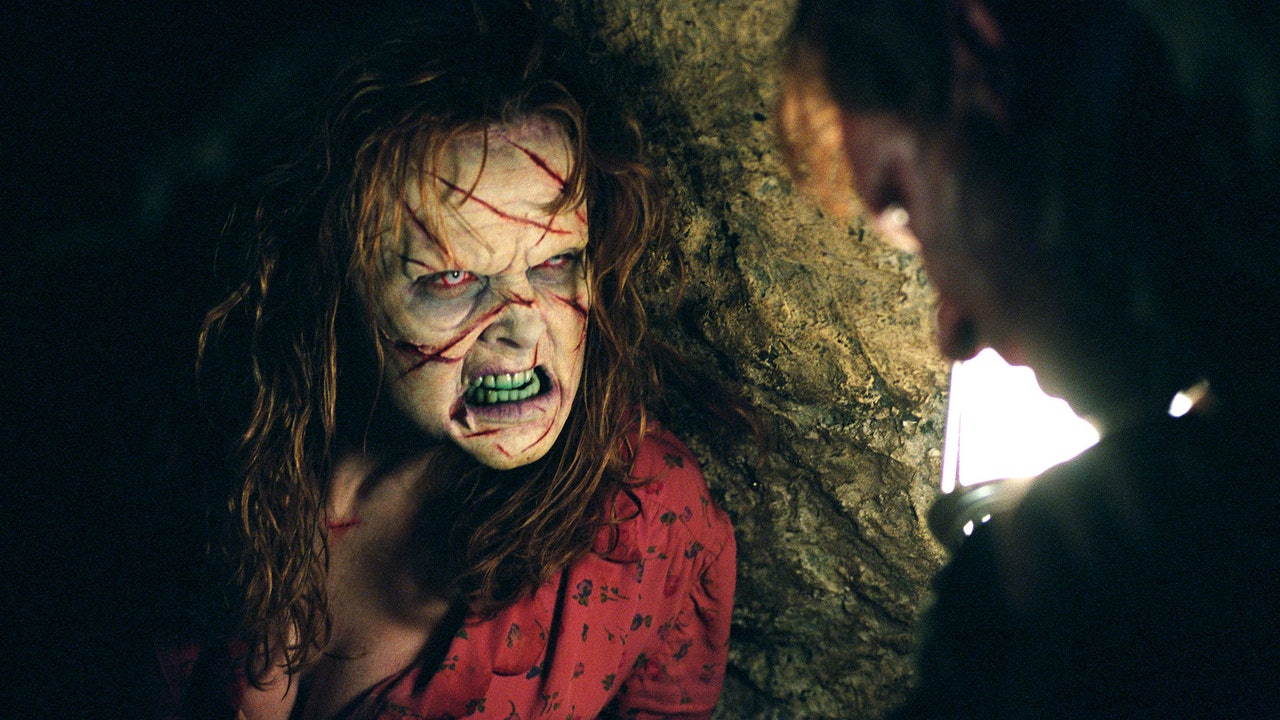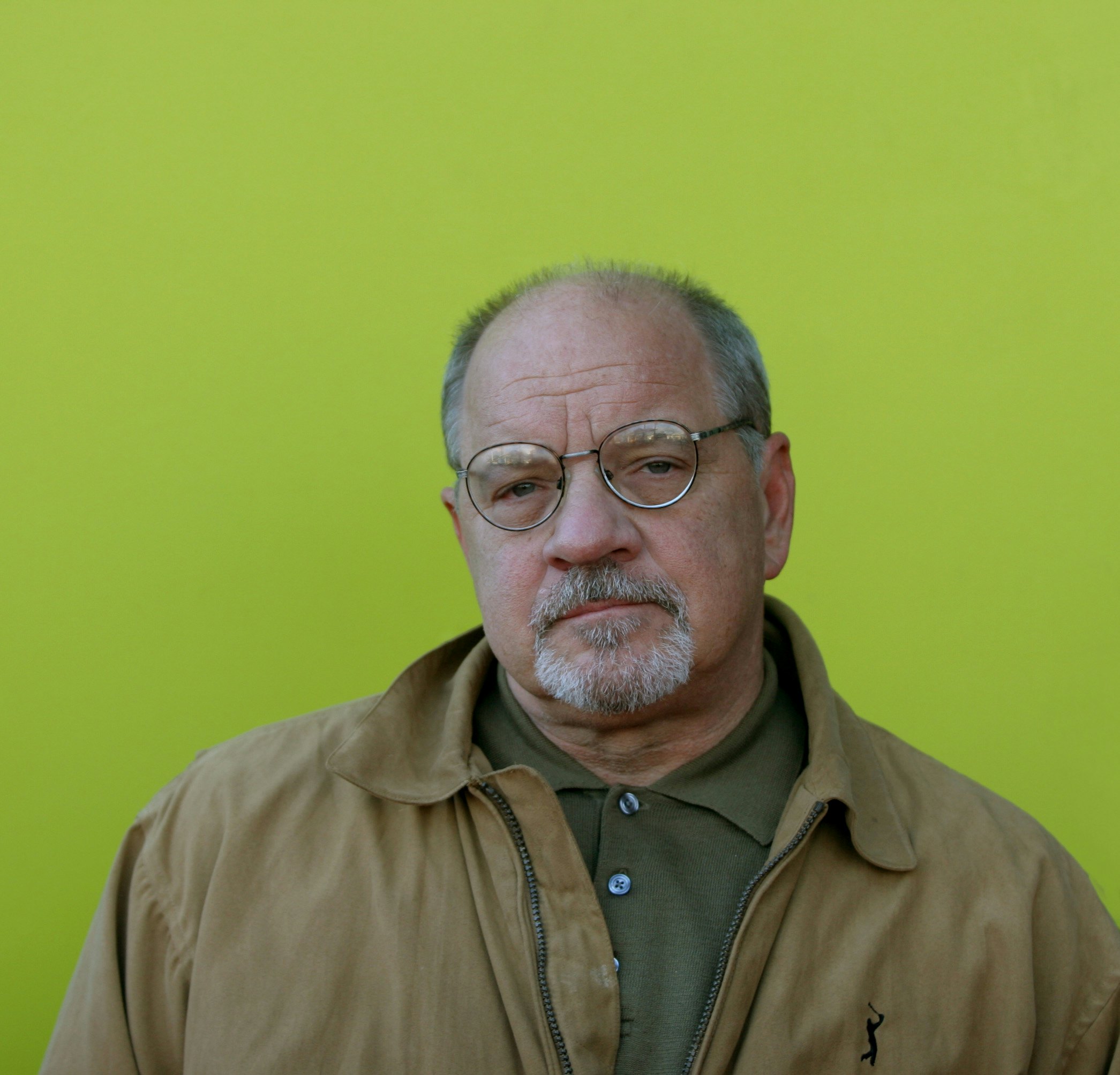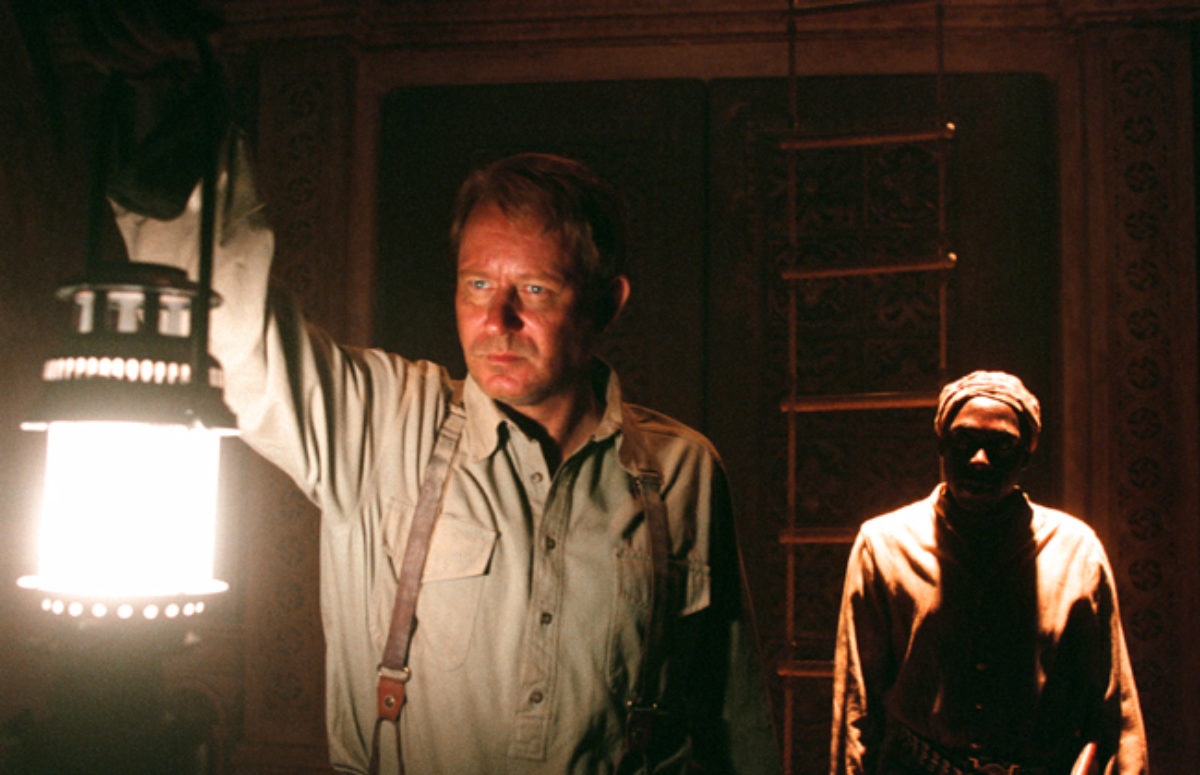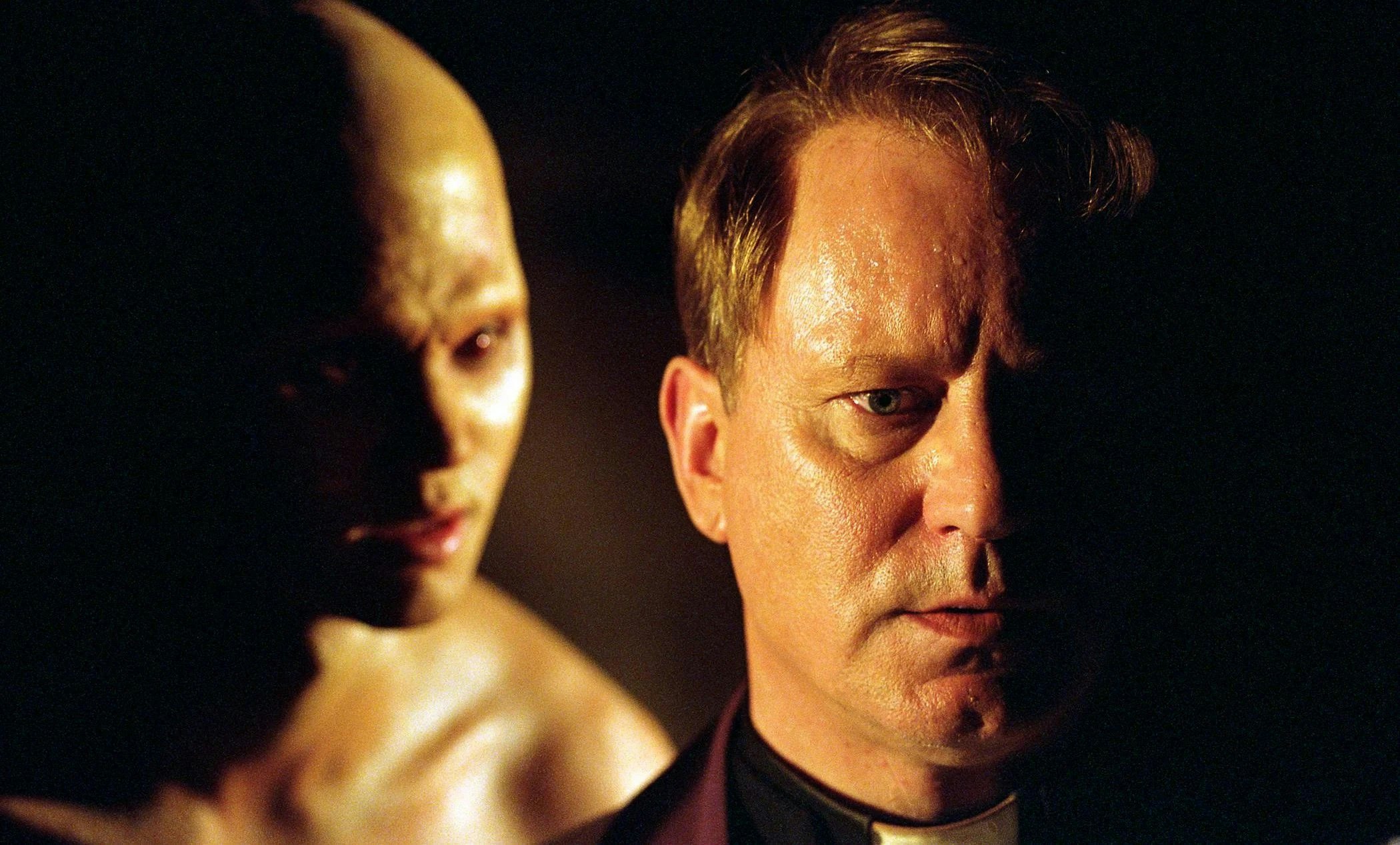
It’s been 51 years since William Friedkin’s The Exorcist changed the face of horror cinema, and Hollywood has been trying to make lightning strike twice ever since. Various Exorcist sequels were made over the ensuing decades, and they have ranged from good (The Exorcist III) to interesting (the Fox TV series) to truly baffling (Exorcist II: The Heretic.) Last year's The Exorcist: Believer tried to revive the entire franchise. Instead, it was a critical flop, resulting in the scrapping of a planned trilogy in favor of yet another reboot.
Twenty years ago, attempts to expand the original film’s lore with a prologue focused on the character of Father Merrin led to a creative schism that resulted in two very different Exorcist prequels that fail in their own unique ways.
The film was supposed to be directed by John Frankenheimer of The Manchurian Candidate fame, with a script by author Caleb Carr (best known for The Alienist.) When Frankenheimer fell ill, he was replaced by Paul Schrader, the writer-director best known for penning Taxi Driver and directing First Reformed. It seemed like a good fit as Schrader's work often delves into ideas of faith and redemption. Production was fraught, and by the end of shooting, six writers had contributed to the screenplay and the budget had doubled. Schrader's original 130-minute cut was shown to Warner Bros. executives, and they panicked. They thought it wasn't scary enough, too serious, and not appropriately Exorcist-esque. Further drama ensued and Schrader was eventually fired and his film scrapped.
Producers then decided to start again, with director Renny Harlin taking over. That meant rewriting the script, bringing in some new actors, and adding more of the action and thrills the producers wanted. They threw even more money into a whole new shoot. Work was still being done on the movie two months before its scheduled release of August 20, 2004.
The end result was disastrous. Exorcist: The Beginning was a box office flop, a critical catastrophe, and a Razzie nominee (it lost to Catwoman.) It seemed like there might be an opportunity for Schrader's version to see the light of day. Eventually, the producers gave Schrader $35,000 and a brief period to put together a full cut of his Exorcist prequel, and they released it under the name Dominion: Prequel to the Exorcist in theaters the following year. It was also a commercial and critical flop, although reviews were somewhat kinder towards Schrader's one.

Exorcist: The Beginning largely operates on the logic that more is better, and that shoehorned in references to Friedkin’s film constitute lore. Stellan Skarsgård, the only major actor in both versions, plays Father Lankester Merrin, whose dedication to the church has fallen apart in the aftermath of what he witnessed during WWII. Now, it's 1949 and he's been asked to investigate a mysterious discovery in Egypt: a Christian church found buried in the sand that predates when the religion reached Africa. Cue the demons and a need for, yes, an exorcism. Harlin gave the producers what they wanted: more action, more gore, more jump scares. But rather than be scary, it’s all either silly or logistically weird (what army has the time to crucify thousands of soldiers upside down on the battlefield?!) Giving Father Merrin a backstory feels needless as it is, but trying to turn him into Indiana Jones is outright daft. It’s hard to imagine any of this taking place within the canon of the original film.
Once you get over the Playstation 1-style CGI of the Schrader film (a hasty and cheap fix for his cut), there are things to admire in Dominion. The director is very serious about showing the rot of evil, not just in the spiritual realm but the human one. He directly compares the crimes of the British Empire to that of the Nazis, and Skarsgård gets way more to do with this Merrin, delving into his inner turmoil and desperation to reclaim his faith. It’s a serious film but also a languid one that still doesn’t feel much like an Exorcist movie. Schrader’s version remains maddeningly incomplete because of its circumstances, but the vision is there. Still, the end product makes more sense if you pretend the story it’s attached to doesn’t exist. In many ways, Schrader did just that when he made one of his greatest films in 2017, First Reformed.


Neither film works on its own merits, nor do they make much sense as Exorcist prequels. It’s hard to escape the sense with both stories that they’re wholly unnecessary. Harlin’s is tonally wrong and Schrader’s, while a more earnest effort, lacks the dread required to make its point. And ultimately, they can’t justify their existences, not when Friedkin’s film remains a timeless piece of horror cinema and works perfectly without having to pad out the backstory of its eponymous character. Father Merrin, played by Max Von Sydow, is poised and elegant, a skilful and empathetic man who has spent decades staring evil in the face and still sees the light of God wherever he goes. We get all of that from the first film and Von Sydow’s impeccable performance conveys it all without flashbacks or monologues.
We’ll probably keep getting Exorcist movies we don’t want because IP rules all, but there are lessons to be learned from these dueling prequels: sometimes, the story is complete and trying to add to it dilutes the original message.







